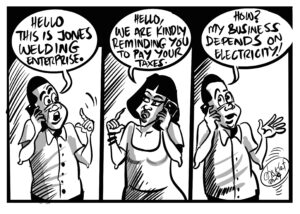Transparency International Zambia (TIZ) president Rueben Lifuka says a Head of State must never be allowed to use his Executive immunity to commit illegalities.
But Lifuka also says his organisation does not support calls to remove the immunity of a sitting President, arguing that there are sufficient laws that could be used to keep the Executive in check.
Lifuka was reacting to a statement by Zambia Council for Social Development Executive Director Lewis Mwape who called on Zambians to demand for the removal of Presidential immunity from the Constitution.
“As an organization, we are of the view that No one must have immunity to face the law or to be held accountable even through legal means. We therefore call on Zambians to demand for the removal of Presidential immunity from our Constitution. Criminals must not be legally protected by the constitution of the Land. At the moment, the office of the president is used as a shield by those appointed to run government, to commit crimes and abuse public assets and resources with impunity,” Mwape observed.
But Lifuka told News Diggers! in an interview that it is a responsibility of citizens in every democratic nation around the world to ensure that executive immunity of the president is confined to the execution of national duties.
“Executive immunity is always important in the execution of power in any state, you can look at all democracies around the world, particularly when executive immunity is used in public interest. What is wrong is to use executive immunity for personal gain and I think that is where we need to provide checks and balances so that the executive immunity, which the president enjoys at this particular instance, is confined to the execution of national duties, promotion of security and peace, as opposed to using presidential immunity to undertake any illegal acts,” Lifuka said.
“I think there are sufficient laws and we wouldn’t want to support [that] carte blanche proposal from the Zambia Council for Social Development because there are sufficient laws that would deal with criminality even of the serving president. However what we should be saying is we need to find a mechanism to ensure checks and balances on the exercise of the Executive, so that the immunity is not abused for personal gain.”
Meanwhile Lifuka said TIZ expects government to take the Access to Information Bill back to parliament during its legislative sitting which resumes on February 20, 2018.
“You will recall that parliament has got a number of Bills that have been pending and among the bills that we hope will be tabled include the Public Finance Act. The amendments to the public finance act are important in that they strengthen the element of accountability and there are some very good provisions which we would like to ensure that they are part of the main legislation. We also hope that this time around, government will fulfil its promise of taking the Access to Information Bill back to parliament. We do recall that the ministry of justice in the last sitting had indicated that government was going to take the Access to Information Bill, but this did not materialise. One hopes that this time around, government will prioritise that particular bill,” said Lifuka.
“As you know there are still quiet a number of laws that are pending in order to fully operationalise the constitution. One hopes that in this legislative session of Parliament, government will prioritise those bills so that we can all see the full benefits of the amended Constitution. Government equally needs to give an indication of how they hope to refine the Constitution. There has been an on-going process through the Ministry of Justice to ‘refine’ the Constitution, and we do hope that we are going to have a roadmap presented. The roadmap which also includes the whole discussion on the Bill of Rights.”












